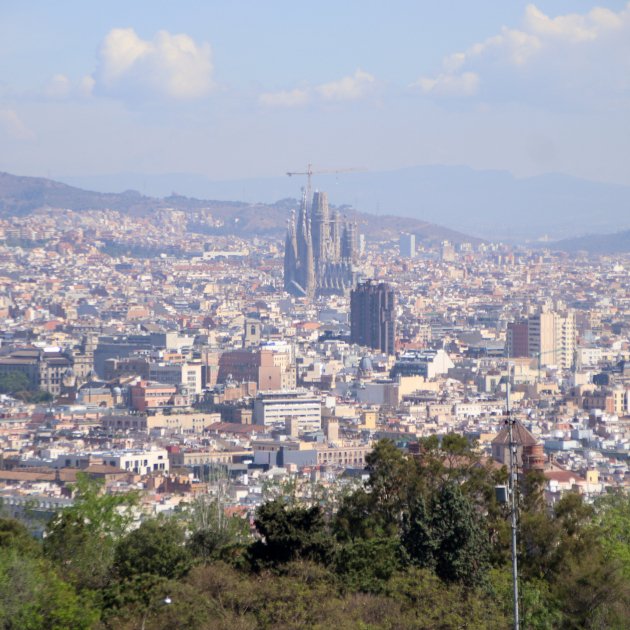A year after becoming the mayor of Barcelona, Jaume Collboni has presented his plan to deal with the Catalan capital's grave problem of access to housing, with skyrocketing rental prices and young people who have to leave the city to be able to emancipate themselves from their parents. Dubbed the Pla Viure, ("Living Plan"), it includes a measure that aims to have a high impact: the recovery of the 10,000 tourist flats that currently exist in Barcelona and that, within a four-year period, will all have gone to the rental or sale market for the residents of the city, as mayor Collboni explained in a press conference: "By 2029, the tourist apartment as we conceive it today will have disappeared", he summarized.
As the Catalan Socialist (PSC) mayor explained, the city council's idea is to apply the decree approved by the Catalan government at the end of 2023 that regulates tourist housing. This decree becomes a "great opportunity" for the city council to be able to recover a very high number of homes for residential use. "The ten thousand homes in tourist use will lose their validity in November 2028 and [any wish to continue their use] must be subject to a license that cannot be requested, because the legal concept of a tourist flat will not exist", detailed Laia Bonet, who also participated in 'this press conference.The deputy mayor also highlighted the work done by the city council to combat illegal tourist flats in recent months.
The Catalan government decree
The Catalan government's decree which the city council intends to put into use was intended to put a stop to tourist apartments, not only in Barcelona but in Catalonia as a whole. Thus, it put a five-year limit on the licences for tourist flats, starting from when it was past last year, and that period will therefore expire in November 2028. When the decree was passed, the Catalan executive argued that there was a relationship between the decrease in rental supply and the increase in tourist flats, assuring that this trend made it "even more difficult for people and families to access a regular home at a time of growth in rental demand". Thus, from 2029 there will no longer be any tourist accommodation in regular apartments in Barcelona, since Collboni's intention is not to promote any urban planning measure that makes the use of housing for tourism purposes compatible with that of a regular residence.
Changes to the 30% social housing allocation
Not renewing the licences of tourist flats and, therefore, planning for them to disappear from the city in 2029 is not the only measure included in the Pla Viure presented this Friday. It also incorporates changes in one of Ada Colau's star measures at the head of the city council, which was to reserve 30% of housing in new developments and major renovations for protected social housing. "The 30% allocation is a measure that we endorsed, but we have always defended that when we have a public policy that does not achieve the objective, it must be changed to reach it", Collboni pointed out, stressing that since its approval in 2018, licences have only been granted for 93 homes in this category and of these, only eight have been executed, figures far removed from the initial forecasts.
Thus, the city hall reform proposal, drawn up by housing economist Carme Trïlla, is to "extend it to new options so that private developers can make the 30% figure effective". This is reflected in different changes made: if the 2018 measure allowed protected housing to be relocated to another plot in the same neighbourhood, but via the processing and approval by the council of an urban improvement plan, it is now considered that the transfer of the 30% allocation to other locations does not require this plan to be processed and that, in addition, it can also be moved to adjacent neighbourhoods. The municipal government's proposal also opens up the possibility of a social developer coming into play, which would be in charge of building the homes resulting from the 30% allocations of private developments on a different site. This developer would have to have a framework agreement with the council to define the procedures, responsibilities and deadlines.
However, to be able to make these changes that his "Living Plan" entails, Collboni, whose PSC group governs with just 10 of the 41 city councillors, will need to get the support of the other municipal groups.
